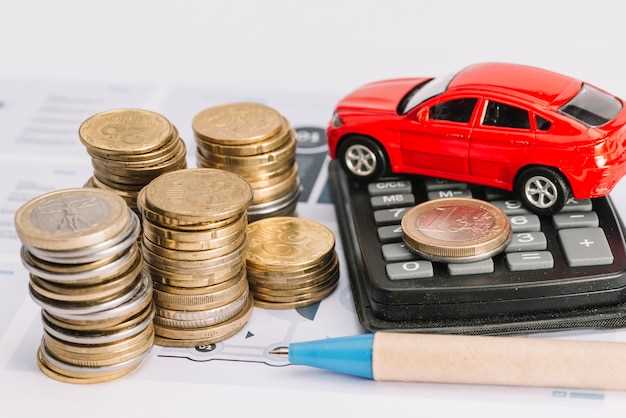Understanding Classic Car Value for Insurance

Determining the value of a classic car is a crucial step in securing appropriate insurance coverage. The appraisal process encompasses several factors that contribute to a vehicle’s overall worth. Classic cars, often representing significant investments and cultural heritage, require careful assessment to ensure that their value is accurately reflected in insurance policies.
When conducting a classic car appraisal, it is essential to consider not just the market value, but also the vehicle’s unique history, condition, and rarity. These elements play a vital role in establishing a fair appraisal that protects the owner’s interests. Insurers need precise valuations to provide adequate coverage, making professional appraisals vital for classic car owners.
Furthermore, the classic car market can fluctuate, influenced by trends and collector demand. This volatility underscores the importance of regular reassessments to maintain adequate insurance coverage. Owners should stay informed and seek periodic appraisals to ensure their beloved vehicles are properly insured, reflecting their true value over time.
Factors Influencing Classic Car Appraisal Accuracy

Accurate appraisal of classic cars is essential for securing adequate insurance coverage. Several factors influence the value assigned to these vehicles during the appraisal process. Understanding these factors helps both car owners and insurance companies establish a fair market value.
Condition and Restoration: The current state of the car plays a crucial role in determining its value. A well-preserved vehicle with original parts is generally more valuable than one that has undergone extensive restoration with aftermarket components. Evaluators look for rust, paint quality, and overall mechanical condition to gauge the car’s integrity.
Rarity and Demand: The rarity of a classic car significantly impacts its appraisal. Limited production models or unique variations often fetch higher prices due to their scarcity. Additionally, market demand for specific makes and models can fluctuate, affecting their appraised value. Trends in classic car collecting can shift quickly, influencing prices over time.
Documentation and Provenance: Having complete documentation, including service records, previous ownership history, and original sales invoices, enhances a classic car’s value. Provenance provides insights into the car’s story and can establish authenticity, which is vital for accurate appraisal.
Market Comparisons: Appraisers often use comparable sales data to assess a car’s value. Analyzing recent sales of similar vehicles helps establish a baseline for appraisals. Factors such as location, mileage, and customization can all alter how these comparisons are made.
Special Features and Modifications: Certain features, such as high-performance engines, unique interiors, or factory options, can increase a classic car’s value. However, modifications must be carefully evaluated, as not all alterations enhance desirability. Non-original parts might detract from the overall value, depending on collector preferences.
In conclusion, classic car appraisal accuracy relies on multiple interrelated factors. Owners and appraisers must consider the car’s condition, rarity, documentation, market comparisons, and special features to arrive at a precise valuation for insurance purposes.
Step-by-Step Guide to Determining Vehicle Value for Insurance
Determining the value of a classic car for insurance purposes is crucial to ensure that you are adequately covered in case of loss or damage. Follow this step-by-step guide to accurately assess your vehicle’s value.
-
Research Market Trends
Start by examining recent sales of similar classic cars. Look at auction results, classic car sales websites, and local classifieds to gather data on current market prices.
-
Consider Vehicle Condition
Evaluate your car’s overall condition. Consider mechanical integrity, bodywork, interior condition, and any modifications. Be honest about its state to avoid undervaluing or overvaluing your car.
-
Account for Mileage
Mileage can significantly affect a classic car’s value. Lower mileage often corresponds to a higher value. Document the odometer reading and compare it to typical mileage for your vehicle’s make and model.
-
Identify Unique Features
Note any special features or upgrades that might enhance the value. This could include rare color options, original parts, or limited editions. These unique aspects can be a selling point in your assessment.
-
Consult Professional Appraisers
If you’re unsure about your assessment, consider getting a professional appraisal. Appraisers specialize in classic cars and can provide an expert opinion on the vehicle’s value.
-
Utilize Online Valuation Tools
There are online resources and valuation tools available that can help you estimate your car’s value based on various factors. Make sure to cross-reference multiple sources for a well-rounded estimate.
-
Document Everything
Keep detailed records of your research, appraisals, and any modifications made to the vehicle. This documentation will be valuable when discussing coverage with insurance providers.
By following these steps, you can determine a fair and accurate value for your classic car, ensuring you have the right insurance coverage in place.
Common Mistakes in Classic Car Valuation and How to Avoid Them

Valuing a classic car accurately is essential for insurance coverage, yet many owners make mistakes during the appraisal process. One common mistake is relying solely on online price guides. These resources can provide a general idea of value, but they often lack the nuance of local market conditions and the specific details of the car.
Another frequent error is overlooking the car’s condition. Appraisals should consider not just the exterior appearance, but also the mechanical state, originality of parts, and any modifications made. Failing to assess these factors can lead to an inflated or deflated valuation, potentially resulting in inadequate insurance coverage.
Owners often underestimate the importance of documentation. Comprehensive records of maintenance, restoration, and provenances, such as previous ownership and historical significance, can significantly enhance a car’s value. Ensuring that all paperwork is organized and accessible during appraisal can prevent undervaluing the vehicle.
Furthermore, ignoring the impact of market trends can misguide appraisals. Classic car values fluctuate over time based on demand and cultural interest. Keeping abreast of trends and attending car shows or auctions can provide insight into the current market, leading to more accurate valuations.
Lastly, many car owners neglect to consult with qualified appraisers. Professional appraisers possess the expertise to evaluate a classic car’s value comprehensively. Engaging an experienced appraiser can help avoid common pitfalls and ensure that the value reflects both the car’s true worth and current market conditions.



